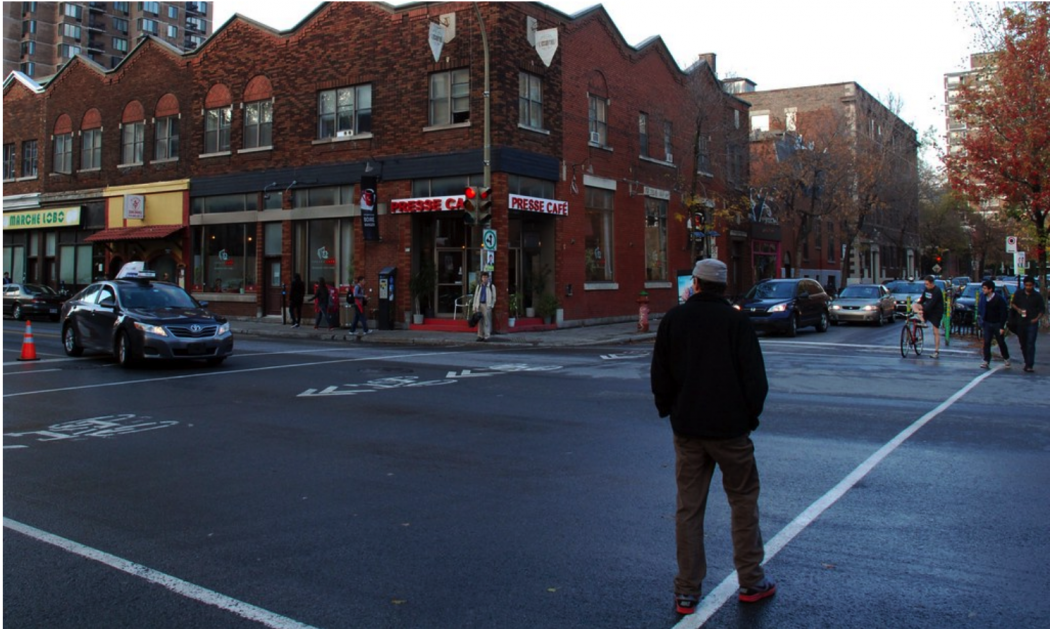In 2018, Montreal was ranked the number one safest city in North America for its low homicide rate of 1.11 homicides for every 100,000 inhabitants—a statistical sigh of relief compared to the 4.72 average of 19 other large cities in Canada and the United States.
“Two years ago, I didn’t believe that I could be unsafe walking through [Milton-Parc], in an area where I know most of the people who live there,” said Sarah Dempsey, a U2 Science student.
At the time of writing, Montreal’s 28th homicide of the year had just occurred on Halloween in the borough of LaSalle. A 48-year-old man was pronounced dead on the scene in his apartment. The day before, a 23-year-old man had been found in an alley not far from the Atwater metro after a stabbing with an unknown motive.
Violent crime in Montreal has generally increased since 2015, but some of this year’s incidents have been particularly harrowing, and for some of us, quite literally too close to home.
On the morning of November 2, a man was found critically injured on Rue Hutchison by Avenue des Pins, about a block from the McGill gym. The stabbing of Romane Bonnier was the 26th homicide of the year. Bonnier, a 24-year-old woman, was murdered on Rue Aylmer, barely a minute away from Milton Gates.
“But when something like this happens, you have it in your mind that ‘something like this can happen to me.’”
“The Aylmer incident was a couple doors down from my own apartment,” Dempsey said. “This definitely heightened mine and others’ safety concerns.”
Almost exactly a month prior, on Rue Sherbrooke across from the Roddick Gates, two men in their early 20s were stabbed, one of whom being fatally wounded. Incidents of violence occurring so close to campus have added a layer of anxiety for students, who are now aware of potential dangers of living in a major city and concerned about their safety.
“[Milton Parc] doesn’t feel very safe nowadays,” said Dempsey. “My perspective is much more skeptical of everyone, and I’m a lot more cautious,” she added. “I always try to walk home with someone else at night, but that’s not always feasible.”
Students are taking extra precautions to ease their nerves while walking at night. U3 psychology student Crystal Yang was a witness to the attack on Aylmer. “I’m just a lot more aware of other people, especially men, when I’m walking around. You’re subject to the possibility of violence being enacted on you at all times, and we can function because we can suppress that anxiety. But when something like this happens, you have it in your mind that ‘something like this can happen to me.’”
Violent crime in Montreal has generally increased since 2015, but some of this year’s incidents have been particularly harrowing, and for some of us, quite literally too close to home.
There have been telling trends in Montreal’s violent crimes over the past two years, likely exacerbated by the conditions of the pandemic. A police sergeant said the “rash” in gun violence over the summer of 2021 could be attributed to how COVID-19 may have “shifted criminality to public spaces.” Bonnier’s death was the 17th femicide this year, close to the already horrific total of 21 femicides in 2020. Additionally, reports of domestic and conjugal violence rose during the pandemic, particularly in the earlier stages of lockdown.
After the death of Bonnier, Montrealers gathered to march against conjugal violence and commemorate the young women. According to the CBC article, “Montrealers are saying no more” to this violence, and consider the rise of violence in the city to be disastrous.
McGill offers services to increase student safety in the Milton-Parc area. DriveSafe is a SSMU service that runs on Thursday, Friday, and Saturday nights to drive students home safely. A SSMU DriveSafe representative said, “We were not running at the beginning of the semester due to issues with our phone line and having fewer volunteers due to COVID-19.” DriveSafe resumed around mid-October; but, since the service was not operating for much of the pandemic, they were not able to promote and operate as usual.
Addressing violence was a hot topic in this year’s Montreal mayoral election as well. Projet Montreal leader Valérie Plante and Ensemble Montreal leader Denis Coderre both campaigned for hiring more police officers in response to the rise in gun violence.
SSMU WalkSafe is also in operation this semester, resuming normal operations after inactivity since March 2020. According to SSMU WalkSafe President, Leon Picha, the service aims “to establish an accompaniment service to escort students and Montrealers alike to and from their desired destinations.” WalkSafe operates 9-12 PM from Sunday to Thursday, and 9-3 AM on Fridays and Saturdays via phone.
It is unclear if the demand for WalkSafe has risen given the increase in incidents and caution in Milton-Parc. SSMU “doesn’t disclose statistics on our walk frequencies or any notes on the demand of our service” for the purpose of providing anonymity to those using the service, according to Picha.
Addressing violence was a hot topic in this year’s Montreal mayoral election as well. Projet Montreal leader Valérie Plante and Ensemble Montreal leader Denis Coderre both campaigned for hiring more police officers in response to the rise in gun violence. Meanwhile, Mouvement Montreal leader Balarama Holness advocated for reallocating the SPVM budget—which has increased steadily to $800 million—to social services and police reform.
A few weeks after the attack on Aylmer, Yang was asked about her opinion on the mayoral candidates’ platforms for policing. “I didn’t have a good response because morally, I know there are genuine harms associated with policing,” she explained. “I think the natural tendency is, for some people, to prefer that option just because it seems like a more immediate solution, whereas directing funds to social services is not something you can see immediately.”
Violent crimes happening so close to campus are both tragic and disturbing for many in the community. Picha remarked that he finds “the event that happened on Aylmer, along with the other events in the Montreal area, to be troubling,” adding, “It is a reminder to stay safe, keep an eye on our peers, and practice safe habits at all times.”
This article was initially published in the Bull & Bear’s Fall 2021 print edition, which you can access here.








